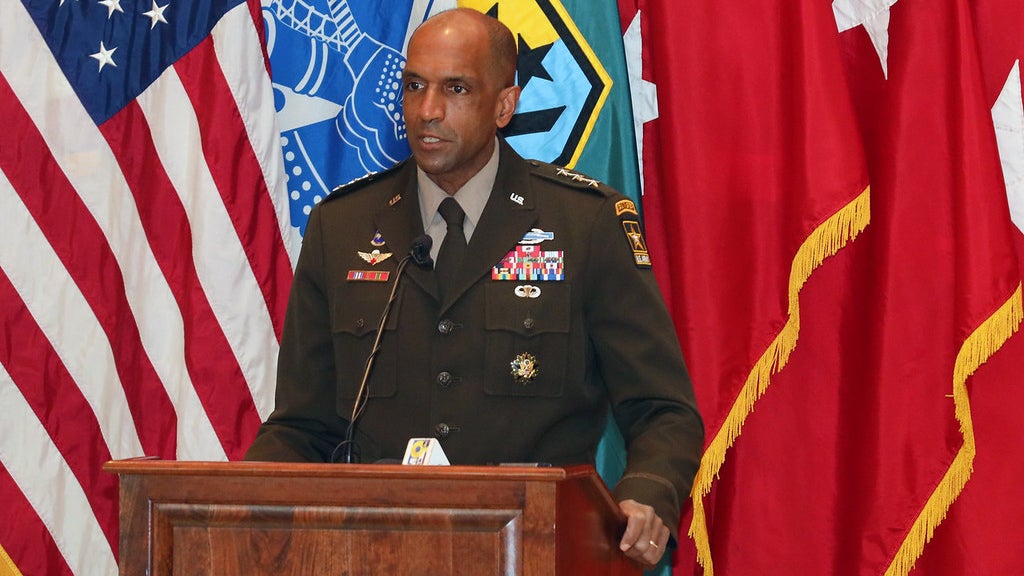Brito: Leadership Starts with Caring for Soldiers
Brito: Leadership Starts with Caring for Soldiers

The fundamentals of effective leadership for the Army’s youngest officers are the same as they have always been, and it begins with taking care of soldiers, the service’s top personnel officer said.
New lieutenants, because of their age and experience relative to some of the young people in the ranks, should start with the basics, such as connecting with their soldiers, listening to and learning from their NCOs, exercising humility and developing a sense of inclusivity among the people they’ll be working with, said Lt. Gen. Gary Brito, deputy Army chief of staff for personnel.
“When you join as a second lieutenant, remember that you’re not expected to be walking in as the battalion commander, so take care of where you are, and it will all continue to bloom just like any flower would,” Brito said Feb. 5 in an interview in advance of a leadership development conference with ROTC cadets from various Eastern colleges and universities.
Incoming officers should “take the time to learn your soldiers and treat them almost like your own, love them. When you do that, it will enable successful execution of whatever the Army mission is,” Brito said, pointing to the “informal handshake we have with America” to take care of the Army’s most precious asset—its people.
The fourth annual future leader development conference, hosted virtually out of Fort Jackson, South Carolina, also featured Gen. Paul Funk, commander of Army Training and Doctrine Command; Lt. Gen. Leslie Smith, Army inspector general; Lt. Gen. James Pasquarette, deputy Army chief of staff for resources and plans; and a dozen other general officers, including several with ties to South Carolina.
Interaction between the cadets and general officers is meant to foster enduring ties and mentorship opportunities as the cadets prepare to be commissioned and join formations across the Army. The event is hosted by Fort Jackson because of its central location on the East Coast.
As the new lieutenants rise in the ranks, Brito predicted, they will be mentored by leaders who have done the job before them. The youngest officers “should take the time to make that same investment in somebody behind them.”
“There’s a future lieutenant in high school today that they will soon mentor a lot sooner than they think,” Brito said. “I see that now after 33 years looking back and making those investments in the types of leaders we need.”

